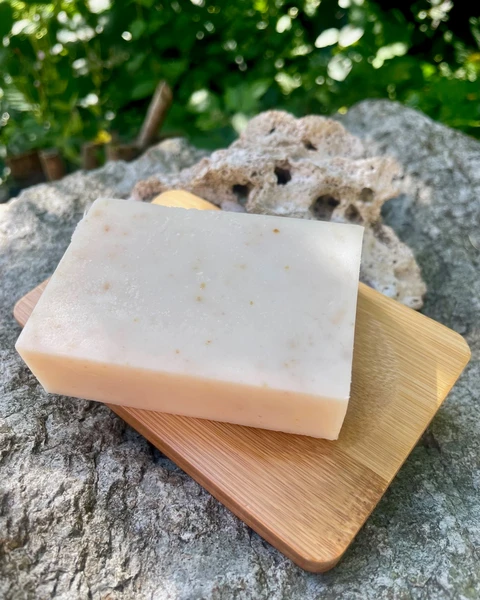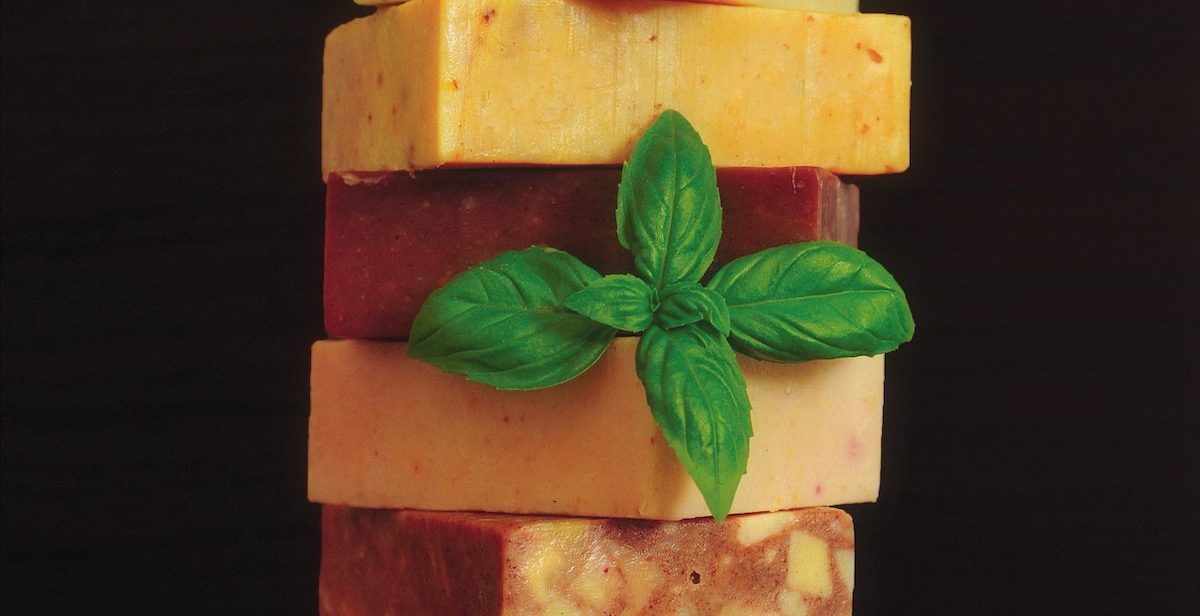For obvious reasons, soap has become a hot topic in the last 18 months. With people washing their hands like never before, soap is now more important in many households. But is soap sustainable?
The answer is nuanced. Soap’s sustainability depends on many factors. Which chemicals does it contain? Where do the ingredients come from? And how was the soap processed and packaged?
What soap is best? Bar or liquid?
Liquid soap was first patented in 1865 by American inventor, William Sheppard. But despite it being “very convenient,” liquid soap didn’t become popular until the 1980s. In recent years though, many have favoured bottles over bars. But all that looks set to change as people become more and more concerned about the environment.
Bar soap and liquid soap are equally effective cleaners. But liquid usually comes in plastic bottles. And it’s well documented that around 10% of the plastic you use will end up in the ocean. Not only that. Liquid soap is more wasteful. A group of Swiss researchers found that while handwashing, people use 2.3g of liquid compared to 0.35g of bar soap.
Everything we do has an environmental impact
It’s true. Every action we take impacts the environment. But that means we can learn to make choices that impact the planet less. Ethical Consumer lists three things to look out for when buying soap:
- Solid bars probably don’t use petroleum. They use less packaging and have lower transportation emissions than liquid soap
- Organic soaps don’t contain harmful chemicals
- Vegan soaps aren’t tested on animals
Of course, things are rarely as simple as they seem. Vegan products may not always be the least harmful option. Debbie Green from Sustainable Soapery lives on a smallholding in North Wales. Her dream is to be as self-sustainable as possible, and she loves helping others on their journey. Debbie and her family keep grass-fed sheep, seeking to use every part of the animals they love.
During the first lockdown, Debbie watched the shelves emptying in her local supermarket. Knowing she wanted to take her quest for sustainability further, she did a diploma in natural soap making and started supplying friends and family.

She now makes soap from sheep lard, beeswax, and other ingredients. And she works hard to ensure full traceability in her tradeline, buying cruelty-free and organic where possible. But while she does make vegan soaps from sunflower wax, Debbie believes the non-vegan soaps are better for the environment. “Beeswax comes from our neighbours,” she says. “And in terms of mileage, the lard bars are better than sunflower ones”.
So, unless you’re a vegan for ethical reasons (and it’s clear that there are many good reasons to be vegan), choosing a locally produced soap may well be more sustainable in the long run.
The problem with antibacterial soap
Antibacterial soaps are all over the place. Constant advertising convinced us it was necessary to fight a war on bacteria. But times are changing. It’s now well known that antibacterial soap is no better than normal soap and water. The chemicals used in antibacterial soaps may be harmful to humans and our planet. And such soaps may be helping create antibiotic-resistant bacteria.
The message is clear. For the sake of your health and the planet, use plain old soap and water.
But isn’t solid soap unhygienic?
No, it’s not. If the sight of a cracked bar of soap is enough to make your nose wrinkle, there’s good news. New research shows you don’t have to worry about contaminating yourself with bars of soap.
What’s the most environmentally friendly soap?
The best soap for the environment is one that’s made close to home, from natural products. Holly Rose writes extensively about regenerative sustainability. She’s created a 10-point ethics and sustainability standard with which to judge companies. Here are her questions to help you choose the best eco-products:
1) Are the products made with natural and organic ingredients?
2) Are the ingredients ethically and sustainably sourced?
3) Are the products conflict palm-oil free?
4) Are the products tested on animals?
5) Are the products cruelty-free?
6) Do the ingredients check out safe on EWG (a consumer guide helping people make informed choices)?
7) Is the company philanthropic?
8) Are the products packaged responsibly?
9) Do the products respond well on my skin?
10) Are the products non-gendered?
It’s a great idea to have some questions under your belt when seeking the most sustainable companies to support. After all, says Debbie, “it would be more useful to the planet if people were engaged in constructive debate”.
Sustainable soap isn’t just for humans!

Choosing the best soap for the environment isn’t just for humans. You might work hard to make sustainable choices for your family. But do you struggle when it comes to your pets? If so, you might like to learn about Sustainable Soapery’s natural dog shampoo. Cut into paw-shaped bars, this product is cold-processed and made from all-natural ingredients.
If you’re looking for the most sustainable soap solution for you and your family (both two and four-legged), start looking around. The chances are higher than ever before that there’s someone in your local area making sustainable soap. And don’t forget the most important factors for sustainability: local, cruelty-free, chemical-free, plastic-free.

